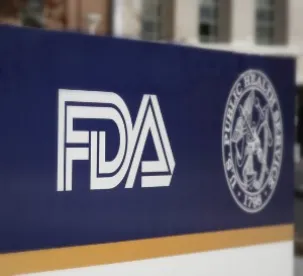The Food and Drug Administration issued an enforcement policy on the use of digital health devices that are considered therapeutic for psychiatric disorders during the Coronavirus (COVID-19) public health emergency. The agency clarified it does intend to address low-risk digital health products and also clarified that standard video platforms used for telemedicine are not medical devices. This update signifies FDA’s attempt to waive certain review requirements during this health emergency.
IN DEPTH
On April 14, 2020, the US Food and Drug Administration (FDA) issued its Enforcement Policy for Digital Health Devices For Treating Psychiatric Disorders During the Coronavirus Disease 2019 (COVID-19) Public Health Emergency. In the policy, FDA announced its intent to exercise enforcement discretion with respect to certain regulatory requirements—i.e., the 510(k), registration and listing, and unique device identifier requirements, among others—for digital health therapeutic devices for psychiatric disorders during the public health emergency. FDA also clarified that it does not intend to assess low-risk digital health products that make certain claims for mental health or psychiatric conditions to determine whether they are devices, or to enforce applicable regulatory requirements if they are devices. Practically, this means that FDA does not intend to apply or enforce medical device requirements for these products during the public health emergency. FDA also clarified that standard videoconferencing software used for telemedicine is not a medical device.
The enforcement policy reflects the agency’s attempt to address concerns that patients may have limited access to face-to-face treatment, monitoring and interventions while social distance orders remain in effect.
Computerized Behavioral Therapy Devices and Other Digital Health Therapeutic Devices for Psychiatric Disorders
Computerized behavioral therapy devices for psychiatric disorders are class II, prescription-only devices regulated under 21 CFR § 882.5801 (product code PWE) that provide computerized, condition-specific behavioral therapy as an adjunct to clinician-supervised outpatient treatments. These products use various tools, such as daily treatment sessions, coaching, reminders, and assessment or monitoring of symptoms, to help patients manage symptoms and care. FDA has cleared these products for use for disorders such as substance use disorder and chronic insomnia. Other digital health therapeutic devices that operate using a different fundamental technology that do not fit within 21 CFR § 882.5801 are also subject to the enforcement policy, as are computerized therapy devices that are outside the scope of 21 CFR § 882.5801 (e.g., non-prescription devices). While FDA did not specifically describe the other types of digital health therapeutic devices that would be subject to the enforcement policy, the guiding principles suggest that tools that use wearables, artificial intelligence or machine learning, or principles such as Acceptance Commitment Therapy or other types of therapies, would be subject to the policy. The policy also does not explicitly address post-market modifications to previously cleared digital health devices for psychiatric disorders.
The enforcement policy does not apply to devices for the treatment of underlying psychiatric conditions that may require an urgent or immediate clinical intervention and for which delay of such intervention may pose significant harm to the patient (e.g., treatment of suicidality). FDA did not provide concrete examples of the underlying conditions that would not be eligible for enforcement discretion under the policy. However, the list of psychiatric conditions that FDA identified as generally within scope for the enforcement policy provides a clue as to which conditions may be out of scope. The enforcement policy will be available to devices for the treatment of psychiatric conditions such as obsessive compulsive disorder, generalized anxiety disorder, insomnia, major depressive disorder, substance abuse disorder, post-traumatic stress disorder, autism spectrum disorder and attention deficit hyperactivity disorder. While FDA stated that the examples of in-scope conditions are not exhaustive, manufacturers and developers should evaluate the clinical severity of the symptoms and risks associated with the underlying disorder to determine whether their device is in scope for enforcement discretion. Companies should consider providing contemporaneous documentation and justifications (e.g., clinical, regulatory, medical and legal) for decisions regarding the applicability of this policy.
In order to mitigate risk, FDA describes various performance, software validation, cybersecurity, labeling (including precautions, contraindications and instructions for use) and other risk management processes that developers should implement before proceeding under the policy.
Devices must satisfy the risk management criteria described in the policy to be exempt from applicable medical device requirements. These requirements include:
- The premarket notification requirement under section 510(k) of the Federal Food, Drug, and Cosmetic Act and 21 CFR § 807.81
- Reports of corrections and removals under 21 CFR Part 806
- Registration and listing under 21 CFR Part 807
- Unique Device Identification under 21 CFR Part 830 and 21 CFR § 801.20 where such devices do not create undue risk.
FDA also does not intend to enforce compliance with the special controls identified in 21 CFR § 882.5801 (i.e., prospective clinical data). These exemptions do not apply to already-cleared computerized behavioral therapy devices.
Low Risk General Wellness Devices
Consistent with the 21st Century Cures Act, FDA reiterates that software functions intended to maintain or encourage a healthy lifestyle that are unrelated to a specific disease or condition are not devices and thus are not subject to device requirements. For example, items used for the following purposes would not be considered devices:
- Promoting relaxation, mindfulness or meditation
- Reducing stress, fatigue or feelings of isolation
- Promoting good sleep, improving the sleep experience, having more relaxing or restful sleep, or sleeping through the night or all night
- Reducing stress and promoting a positive mental outlook, including helping users live well during the COVID-19 public health emergency
- Reminding users to keep safe physical (or social) distancing practices during the current public health emergency.
FDA also gives several examples of software functions related to psychiatric conditions that may meet the definition of a device but for which FDA does not intend to enforce device requirements at this time because they pose a low risk. These include functions that:
- Promote, track or encourage choices that, as part of a healthy lifestyle, may help users live well with, or reduce the risk of, certain chronic psychiatric diseases or conditions, where the link between living well and reducing the risk or impact of the disease or condition is well understood (e.g., depression, anxiety, obsessive compulsive disorder, autism, attention deficient hyperactive disorder)
- Help patients with diagnosed psychiatric conditions maintain their behavioral coping skills (e.g., “Skill of the Day” behavioral techniques or audio messages)
- Encourage users to notice, accept and embrace difficult or previously unwanted thoughts or feelings in order to open up to and avoid overreactions to these thoughts or feelings
- Display, at opportune times, images or messages to help stop addictive behavior
- Help users self-manage their disease or conditions without providing specific treatment or treatment suggestions
- Use a checklist or a questionnaire of common signs and symptoms for a psychiatric disorder and provide a list of possible medical conditions and advice on when to consult a healthcare provider
- Guide users through a questionnaire of signs or symptoms for a psychiatric disorder and provide a recommendation for the type of healthcare facility most appropriate to the user’s needs.
Implications
The enforcement policy is most notable as an expression of FDA’s willingness to temporarily waive premarket review requirements for computerized behavioral therapy products during this public health emergency. The enforcement policy also reiterates principles articulated in the Cures Act and clarifies the agency’s general wellness product guidance, respectively, serving as a helpful summary of the agency’s oversight of digital health products for certain psychiatric disorders.






 />i
/>i

